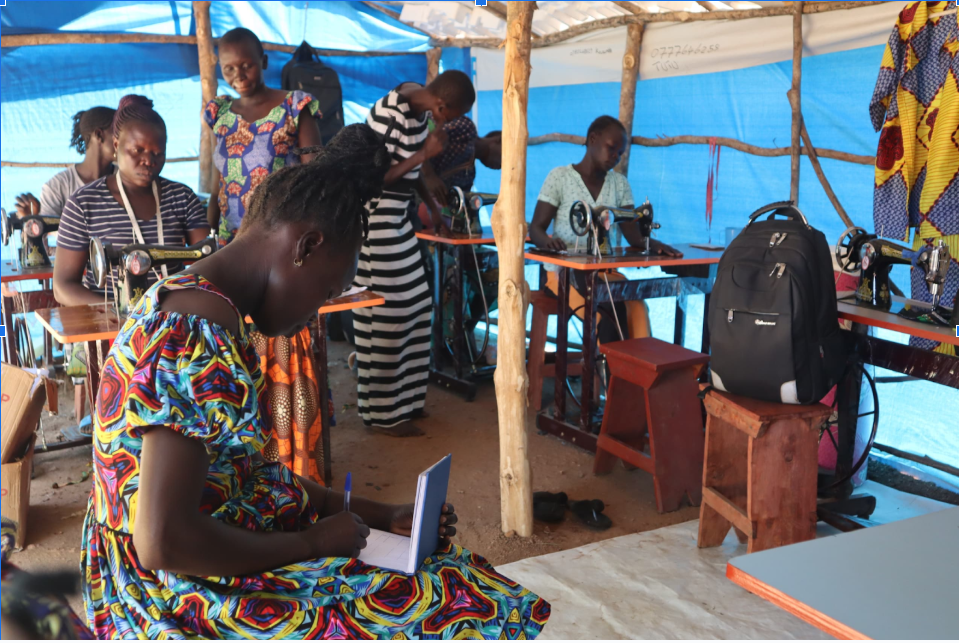In the refugee-hosting regions of northern Uganda, Youth Empowerment to Act Peace and Disability Initiative (YETA), based in Imvepi, Terego district, has worked closely with Cohere for many years. Throughout the partnership, they have demonstrated that when local expertise gets effectively resourced, real and sustainable solutions can flourish.
Cohere shares YETA’s belief that the most appropriate form of humanitarianism must be locally led. The partnership we built with YETA is not just financial, it is built on mutual trust, deep collaboration, and a shared commitment to reimagining what is possible when communities take the lead.
One of YETA’s most impactful community interventions has been in inclusive education, particularly through its “Learn through Play” initiative under the Bright Futures Consortium. The work supports children with disabilities by creating creative and adaptive learning spaces. To cater to the unique needs of these learners, YETA has installed a projector on a movable tricycle to allow learners to watch online educational content, stimulating their creativity and learning.
Recognising the crucial role of caregivers in children’s development, YETA supports caregivers through training in income-generating skills such as tailoring and tablecloth making. These efforts help parents build savings, generate income, and strengthen their financial resilience which is particularly critical in a context where international support from international agencies is rapidly declining. YETA’s approach supports families not by “helping” them, but by working alongside them to equip them with the support they need to sustain themselves.
YETA’s impact has also expanded through collaboration with other international actors within the region, but the full potential of such partnerships will only be realised when organisations like YETA are recognised as equal partners with decision-making power. Too often, refugee-led organisations (RLOs) are sidelined in decision-making spaces, treated as recipients rather than leaders. This model is not only outdated; it is obstructing the kind of systems change that crisis-affected communities urgently need.
YETA’s story points to a deeper truth: local organisations are already designing and delivering innovative, context-specific solutions. What’s missing is not capacity but it is equitable access to resources, and the agency to shape how those resources are used.

Leave a Reply